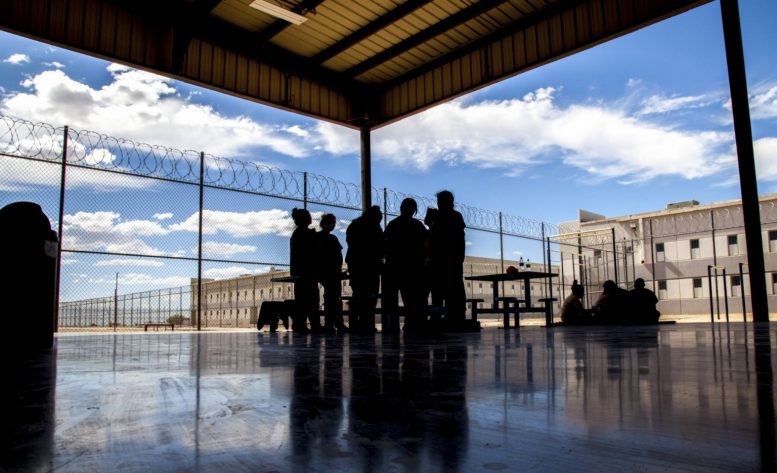Ohio Capital Journal
Ohio House Republicans resumed a push Thursday to force local law enforcement to cooperate with federal authorities seeking to deport illegal immigrants.
Should local governments fail to comply with requests from the U.S. Immigrations and Customs Enforcement to detain suspected illegal immigrants for up to 48 hours, House Bill 169 would cut them off from certain state funds and expose political leaders to an impeachment-like ouster.
The legislation would pit the state against city governments like Cincinnati and Columbus — places that have adopted certain sanctuary policies and expressed their stances against cooperating with ICE. Lead sponsor state Rep. Candice Keller, R-Middletown, dubbed the measure “the anti-sanctuary cities act.”
The legislation would prohibit political subdivisions (cities, counties, municipalities, etc.) from adopting a specific set of policies that fall under the loosely defined “sanctuary city” umbrella.
“A discussion needs to be had as to how these laws have been tying the hands of local law enforcement behind their backs,” Keller said to the House Criminal Justice committee.
No lawmakers asked questions of Keller or cosponsor state Rep. Niraj Antani, R-Miamisburg, on Thursday.
According to analysis from the Ohio Legislative Service Commission, the legislation “might be vulnerable” to a constitutional challenge for violating Ohio’s home rule provisions.
Likewise, the OLSC found that while localities are not currently required to honor ICE’s detention requests, the localities — not ICE — could be held liable for the wrongful imprisonment of citizens.
Although the bill would require local law enforcement to detain suspected illegal immigrants for 48 hours until ICE arrives, it does not provide funds for them to do so.
President Donald Trump issued an executive order shortly after taking office seeking to withhold federal funds from localities that fail to cooperate with ICE. That order has been tied up in the courts.
Since then, some states and localities have adopted anti-sanctuary legislation as a sign of fealty, while others have continued to declare themselves sanctuary cities as acts of defiance.
According to April 2019 research from the National Conference of State Legislatures, Washington, Oregon, California, Illinois, South Carolina, Washington D.C., New York, Vermont, Connecticut, Rhode Island, and Massachusetts have adopted sanctuary policies.
Conversely, Arizona, Texas, Iowa, Missouri, Tennessee, Mississippi, Alabama, Georgia, Florida, and North Carolina have prohibited them.
In an interview after Thursday’s hearing, the committee’s ranking Democrat compared the proposed law to the U.S. Supreme Court’s landmark 1857 ruling that Dred Scott could not be a U.S. citizen because he was a black person.
“It’s a reincarnation of Dred Scott,” said Rep. Dave Leland, D-Columbus. “I think it’s just being done for political points. I don’t think they’re really trying to help anybody.”
Committee Chairman George Lang, R-Westchester Township, who is listed as one of the 13 GOP sponsors of the bill, said he didn’t have a firm position on the legislation.
He said he hasn’t heard anything from House leadership one way or another on it.
In her remarks, Keller cited the Dayton school board’s passage of a resolution to “ensure that our students’ learning environments are not disrupted by immigration enforcement actions” as evidence of why it’s needed.
When asked if he believed educators should notify law enforcement if they believe a student to be an illegal immigrant, Lang demurred.
“I think the teacher should follow her best judgment,” he said.
A spokeswoman for House Speaker Larry Householder, R-Glenford, did not return a request for comment.
While the legislation is likely to prove divisive, Keller is no stranger to controversy.
Over the summer, Keller penned a Facebook post attributing repeated episodes of mass killings in America on, among a laundry list of suspects including recreational marijuana and gay marriage, “the relaxing of laws against criminals (open borders).”The post sparked national media attention, a rebuke from the state Republican Party, and her exclusion from the party’s 2020 endorsements.





